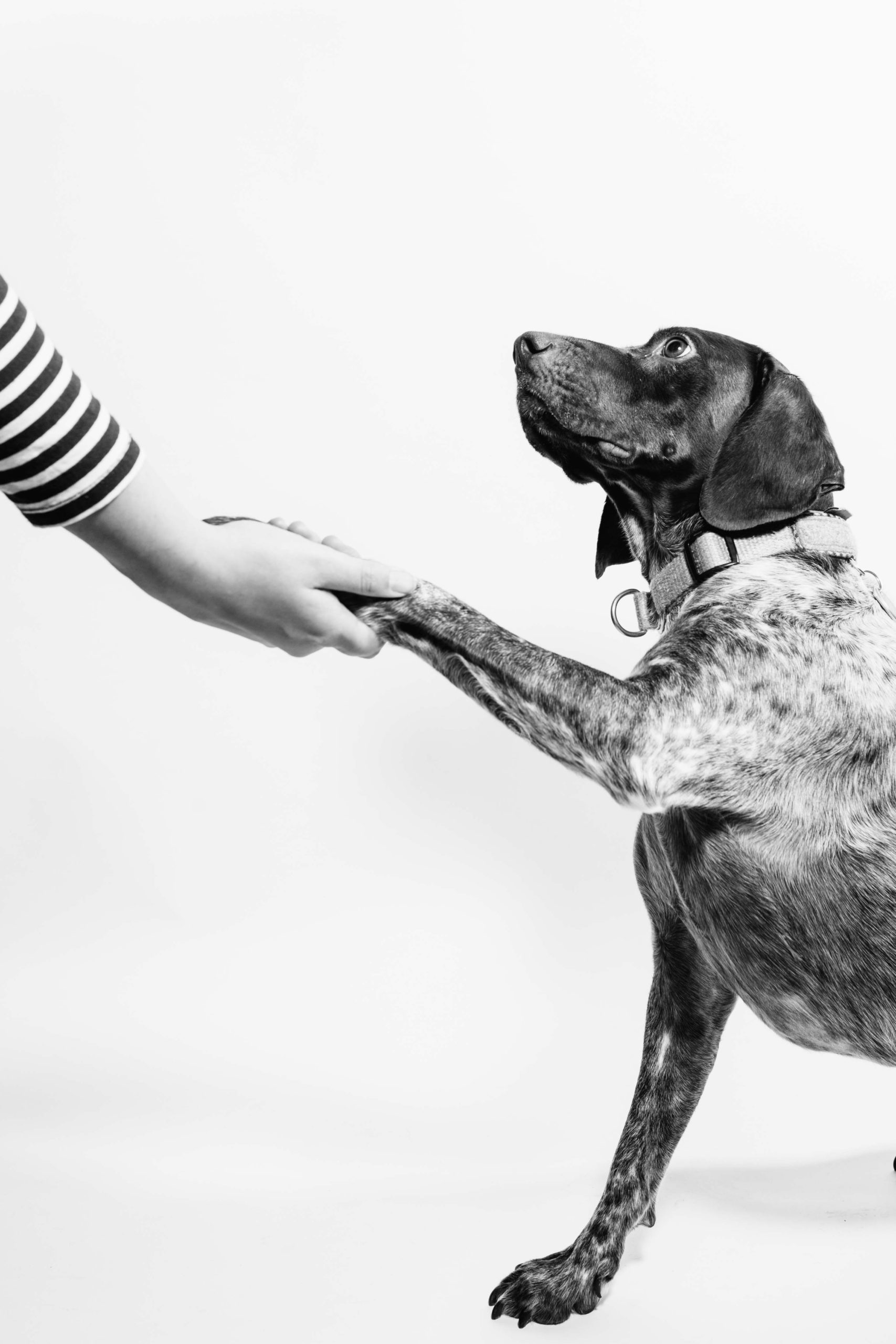If you’ve recently become a new puppy parent, you may be experiencing some sleepless nights due to your furry little friend’s incessant crying. While it’s completely normal for puppies to cry at night, it can be frustrating and downright exhausting for you as their owner.
The good news is, there are several techniques you can use to help calm your puppy and encourage them to sleep peacefully through the night. In this blog post, we’ll share some proven methods for stopping your puppy from crying at night, so you can both get the rest you need.
From crate training to establishing a bedtime routine, we’ll cover everything you need to know to ensure your puppy is sleeping soundly in no time.
Understand Why Puppies Cry at Night
As a dog owner, it is common to hear your puppy crying at night. While it may be tempting to give in and comfort your furry friend, it’s important to understand why they are crying in the first place. Puppies cry at night because they feel lonely, afraid, or even for attention.
Establishing a bedtime routine, creating a comfortable sleeping environment, providing adequate exercise and stimulation, limiting food and water intake before bedtime, and trying crate training are all effective ways to stop a puppy from crying at night.
Offering a comforting presence and gradually increasing the distance and time apart from your furry friend can also help. It’s important to avoid reinforcing crying behavior and to be consistent with your training methods.
With patience and dedication, you can help your puppy learn to sleep peacefully through the night without any tears.
Establish a Bedtime Routine
Establishing a consistent bedtime routine is crucial in preventing puppies from crying at night. By setting a schedule, puppies will develop healthy sleep habits and learn to expect bedtime. This can include feeding, a walk, playtime, and a calming activity such as reading to your pup or listening to soothing music.
Moreover, try limiting your puppy’s activity level and exposure to stimulation before bedtime. Excessive play can overstimulate puppies and make it harder for them to settle down. Instead, opt for quiet activities, such as cuddling or grooming.
Additionally, it’s important to ensure that your puppy has a comfortable sleeping environment free from distractions. A cozy bed, soft blankets, and a quiet location can all contribute to a more peaceful night’s sleep for puppies.
Remember, consistency is key when establishing a routine, and it may take time for your puppy to adjust. With patience and persistence, you can help your furry friend develop healthy sleep habits and prevent nighttime crying.
Create a Comfortable Sleeping Environment
Creating a Comfortable Sleeping Environment for Your PupWhen it comes to training your puppy to stop crying at night, an often overlooked aspect is the sleeping environment. Just like humans, dogs need a comfortable and calming space to sleep soundly.
Start by choosing a cozy and comfortable bed for your pup that is suitable for their size and breed. Consider placing a warm and soft blanket in the bed to make it even more inviting.
Another way to create a comfortable sleeping environment is by controlling the temperature and lighting in the room. Make sure the room is not too warm or too cold and try to dim any bright lights. It’s also important to eliminate any loud or distracting noises that could wake your pup up.
Lastly, consider adding soothing scents to the room, such as lavender or chamomile, which can help relax your puppy and promote restful sleep. By creating a comfortable and inviting sleeping space for your pup, you can minimize their need to cry and increase the likelihood of a full night’s rest.
Provide Adequate Exercise and Stimulation
One of the reasons that puppies cry at night is due to a lack of stimulation throughout the day. It’s important to provide your furry friend with plenty of exercise and playtime before bedtime to help them tire out and feel more relaxed.
Daily walks, fetch sessions, and puzzle toys can also help keep them mentally stimulated. This should be done throughout the day, so your pup is not overly active before bedtime.
By providing your puppy with enough physical and mental activity, they will be more likely to sleep through the night without crying for attention. Remember, a tired puppy is a happy puppy, and they will be more willing to settle down and relax in a comfortable sleeping environment.
Limit Food and Water Intake Before Bedtime
To help calm a crying puppy, it’s essential to limit their food and water intake before bedtime. Puppies have small bladders, and if they drink too much water before bed, they may need to pee in the middle of the night, causing them to wake up and cry.
Likewise, feeding them too close to bedtime can lead to discomfort and disturbed sleep. It’s best to stop giving them food and water at least two hours before bedtime. Ensure they have access to water throughout the day, and spread their meals out evenly throughout the day to avoid hunger pangs at night.
By managing their food and water intake, you can help your puppy get a good night’s sleep and reduce their cries.
Try Crate Training
Crate training is a tried-and-true method for stopping a puppy from crying at night. By creating a safe and secure space for your puppy, they will feel comfortable and relaxed, reducing their urge to cry.
When introducing your puppy to the crate, make sure to use positive reinforcement and offer treats and toys to create positive associations.
Gradually increase the amount of time your puppy spends in the crate, and make sure it’s in a location where they can see and hear you.
Don’t leave your puppy in the crate for too long, and never use it as a punishment. With patience and consistency, your puppy will learn to love their crate and sleep soundly through the night.
The key is to always make the crate a positive and cozy environment for your furry friend.
Offer a Comforting Presence
Puppies are social creatures that thrive on human interaction. Therefore, it is no surprise that many puppies cry at night because they miss their owners. To alleviate their anxiety, try offering a comforting presence such as a shirt or blanket that smells like you.
This can provide a sense of security and comfort for your puppy. Additionally, consider having your puppy sleep in the same room as you at the beginning to reassure them that they are not alone. Gradually increase the distance between you and your puppy as they become more comfortable.
By implementing these strategies, you can help stop your puppy from crying at night and build a stronger bond with your furry companion.
Gradually Increase Distance and Time Apart
One of the most common issues that new puppy owners face is their furry friend crying at night. It’s important to understand that this behavior is completely normal for puppies, as they are still adjusting to their new surroundings and missing their littermates.
However, there are several strategies you can follow to help your puppy sleep through the night. Firstly, try to establish a bedtime routine that includes winding down activities such as a short walk or playtime followed by quiet time.
It’s also important to create a comfortable sleeping environment for your puppy by providing a warm, cozy bed in a quiet area of your home.
Adequate exercise and stimulation during the day can also contribute to better sleep at night, so be sure to schedule regular playtime and walks. Limiting food and water intake before bedtime can also prevent the need for nighttime bathroom breaks.
Crate training can also be effective in helping your puppy feel secure and calm at night. Offering a comforting presence, such as a favorite toy or item of clothing with your scent, can also provide comfort.
As your puppy becomes more comfortable with sleeping on their own, gradually increase the distance and time you spend apart from them. Avoid reinforcing crying behavior by not giving in to their demands or picking them up at night.
Avoid Reinforcing Crying Behavior
When your puppy won’t stop crying at night, it can be frustrating for both of you. However, it’s important to understand why they’re crying in the first place.
Common reasons include separation anxiety or a need to go potty. To establish a healthy bedtime routine, ensure that your puppy gets plenty of exercise and stimulation during the day.
Create a cozy sleeping space and limit food and water intake before bed. Consider crate training as a safe and secure sleeping option. While it’s natural to want to offer comfort, avoid reinforcing crying behavior by rewarding them for quiet behavior or ignoring the crying altogether.
Consistency is Key
Crying puppies through the night can cause lots of discomfort and disturbance. But why do they cry at night? Puppies cry at night to show their anxiety and separation from their mother. To help solve this problem, a consistent bedtime routine for your puppy can be established.
Also, providing a comfortable sleeping environment, adequate exercise, and stimulation during the day can help calm down your puppy at night. Limiting their food and water intake before bedtime is another approach that can be taken.
Additionally, crate training is a popular way to prevent disruptions at night by providing them with a safe space to sleep. Comforting your puppy’s presence can help soothe their separation anxiety.
Gradually increasing distance and time apart can help prevent crying when you are away. Avoid rewarding crying behavior as this reinforces bad habits.
Conclusion
In conclusion, stopping a puppy from crying at night can be a challenging task, but it is possible with time, patience, and consistency.
Remember, crying is normal behavior for puppies, and it’s crucial to address the underlying cause rather than ignoring it or punishing them. So keep your puppy comfortable, create a cozy sleeping area, stick to a consistent routine, and gradually decrease your interactions with them at night.
Lastly, don’t forget to show love and affection to your puppy during the day, as this will help them feel more secure and less anxious at night. With these tips, you can help your furry friend sleep peacefully through the night and build a stronger bond with them.



